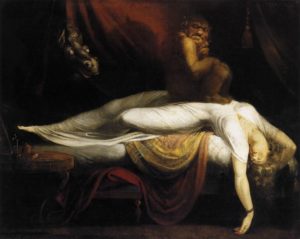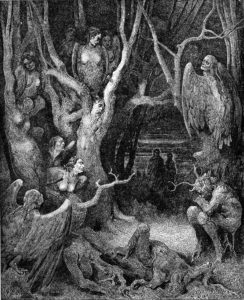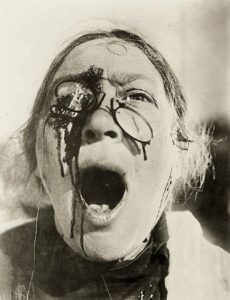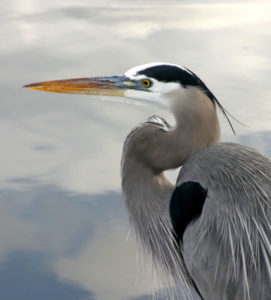Chapter 38: Gravenhurst Wrap-up
The ability to sniff out impure motive seemed to be my latest acquisition, brought into conscious awareness thanks to the over-managed Simon and Allan. As with all ‘magical’ abilities the advantage had a disadvantage that I could guess at: while I would now be better at handling a shift-worker like Dr. ‘Best’ or a mercenary just in it for the money, a parent defending their child would be able to give me a powerful hit.
While this wasn’t an immediate problem I didn’t quite like the feel of this talent. Non-religious as I was it still made me seem more demonic, more like a spiritual test for a hero to overcome in a story. No pride, no showing off, no monetary reward – every step from the ideal heroic act would make fighting me harder, so in a world of flawed challengers I was safer. But I wondered if there was a way to relinquish this power. It wasn’t ‘me’, perhaps just in a fashion sense.
I should have been smarter. Of course feeling less like yourself would be the consequence of assimilating other people, even if you were the ‘manager’.

I found the other ready-to-launch people in Gravenhurst on my own. In the hospital in Trois-Rivieres I had first used my telepathy to unwittingly pick up the general miasma of anger, fear, despair and resentment that concentrates in a hospital, and though the signal here was weaker in terms of numbers my senses were stronger now. Human depression could start to tickle my psionic whiskers a block away, and while some people were depressed ‘normally’ like Allan Bielski others were depressed because of cancer or a heart condition or such a condition in a family member under the same roof. The knowledge that the end was near was horribly clear at the distance from road to doorstep, and if someone was frustrated by how long it was taking to die, especially for themselves, that was hair-raisingly obvious at such range.
Damn, I’m becoming a specialized predator. A bat with ears tuned to the frequency of just one moth’s mating call. But I was still too excited and angry about my encounter with the two doctors and the flying ace to stop hunting.
I didn’t muscle my way into any houses. I had ‘defeated’ the town’s two most powerful guards, and I sensed scampering things cowering away from me, in the guise of cats or dogs or mice, dead men and women and children peering at me from roosts like scared owls. Tonight a monster had the run of their town.
My mind sniffed out a man living in a one-room motel room near the highway exit, stinking of alcohol and divorce. I did not sit on his chest and whisper into his ear like that nightmare demon in the painting, but I established quite clearly in our chat that anyplace was better than here. Karl Ruckert was only in his fifties, but he had a lot of humiliated and angry and self-pitying thoughts swirling around his dreaming head. As with Allan Beilski I worried for a moment about the ‘quality’ of the person I was taking – the mental world could still use its ditch-diggers, but it would be hard to know the details of his life to make a ‘hiring decision’ before I had actually committed.
Then I had to laugh at my own hypocrisy. This wasn’t such a bloodless business decision – let the hierarchy of wardens with Dr. Best as middle management be like that. I took Mr. Ruckert’s pulse, and then finally conducted a ‘classical’ feeding from the neck, leering over the mattress on the floor where many divorcees had curled up and mumbled to themselves before this one. Jean-Claude’s files assured me that turning was a more advanced matter, but I stayed with the corpse for a long while, letting it cool and assuring myself that it would not move.
“It’s over,” I said, looking to the window, sensing the motel’s tutelary cowering just outside. “He’s the only I’m taking from here. Though it feels like I should come back every week.”

On my way over to the next magnetic cluster of death-wishing unhappiness I tried to figure Karl Gustav Ruckert out, juggling that Bible to burn off some of the power I’d absorbed, lest I be too bloated to finish raiding Gravenhurst.
Tuba player, hockey player, bowling champ. That seemed like enough to keep a man preoccupied if his marriage crumbled, but evidently not. He’d made most of his money as a house painter, but he knew a lot about walls in general: sanding, caulking, wallpaper removal, insulation removal, brickwork, how to not get himself electrocuted like a fool in a construction site. If I ever needed to build a house, he would be invaluable in the finishing touches.
But maybe Simon Lipton could use a guy who could run with a wheelbarrow for his fortification work. The former combat engineer seemed to have Allan Beilski jogging and doing pushups with his dog in some little gym somewhere behind my left ear. He could stay depressed, but I wanted him depressed with a six-pack.
I whispered quietly in the night, worrying about the lack of apparent ‘justification’ in this cursory sweep in the depressed man’s life. How brutal could a divorce be? “Did I just happen upon you on a bad night, Karl? Would any other day this week have been different?”
“I … I don’t know.” He was still finding his ‘place’ in my head as well, and would take a few hours for proper conversation.
If suicide got you damned, the Almighty was a prick. One guy reaches for a gun in a drunken fog, it slips from his hand, he passes out – he lives to get his life together, escaping that moment. He gains a better life and goes up to the pearly gates at the end. Another guy reaches for the gun but it’s a millimeter closer, so he gets a grip, finishes the deed, and plummets into hell. An innocent baby killed and sent to heaven could have been a serial killer, and a serial killer would have ended up in heaven if a truck had hit them as a toddler. Unequal chances for success and failure – cosmic judgment was a bunch of unfair nonsense.
I looked for more positives with this particular hire. Well, he had swung fists on a hockey rink during the eighties, with cocaine in play as well as a puck. Jean-Claude had the formal education but Karl had gone through more of the real thing.

In an home for the elderly a lady who had suffered a stroke was miserable with additional dementia, though outwardly serene and unbothered. When I crept into her carpeted and quilted and flower-rich quarters I saw her snoozing in her bed with blue-grey hands folded over her lap, closed eyelids like onion-skins not thick enough to keep out the circling shadowplay of the ceiling fan. She was aged beyond Simon Lipton’s level, where all men look the same – at her level, men and women are practically indistinguishable shapes dried and disrespected by time.
Her inner life was now something like a muted Pulp Fiction, with parts intact but not presented in order, her language skills fried except for when the mix of memories and moments took her back to the time before her stroke. Her dreams were linear, and relatively logical even with fairies and goblins and old dead friends, though she rarely slept more than four hours a night. I had to look to her mail to determine her name: Nancy Vivian Belmont.
Well … shit, how does consent work here?
“This is a place of caregiving, so you better get this right.” That was Simon. I imagined him yammering in the ear of a green cadet, telling him that he better not miss the shot into the fleeing scout or else Charlie would find out where we were planted.
When my psychic question went in, it bounced around in there like a ping-pong ball. It looked hopeless. But maybe …
“Okay,” I muttered, summoning my team. “Who else read Slaughterhouse Five?”
Simon and Karl had, though Karl had been forced to in high school. Simon and I had also read Catch-22, and only Helen had missed Pulp Fiction. I hoped that was good enough – with all these minds familiar with that kind of jumbled story we might have a chance of ‘defragging’ the poor lady long enough to get a question, consideration and answer in the proper order, with some idea of where ‘now’ was.
I closed my eyes and sent my flying head into her overloaded and crippled mind.
“Allan … get in there. She’s miserable ‘now’ but then she’s dancing with her husband twenty years ago and we need her to know ‘now’ to get a sensible answer. She’s been happy until recently, so most of the bad memories go together at the end. Helen, you handle all the personal woman’s matters …”
Fifteen minutes later, I had St. Elmo’s light trickling out of my eyes like tears and a pounding headache. Telepathy can become cramped like a muscle, I had learned. But we’d gotten Nancy to have a horrible moment of clarity in which she knew it was ‘now’, knew that she would go back to confusion but didn’t want to go, wanted to just end for real. It felt rather cruel … but the alternative would have been just leaving her like this.
It was less than two hours before sunrise when I left her cooling body, bitten on the neck. I wondered if I would eventually progress to more cinematic victims, young buxom hotties like the kind Christopher Lee got to chow down on. Some young hot cancer patient, maybe.

My head was killing me, and Nancy’s introduction to my inner army was loud and messy … but I ran anyway to catch the last clear signal before the sun would rise. Random information about Nancy Belmont’s life would crash into my awareness, photobombing what I was trying to pay attention to, almost sending me through a picket fence, almost making me run into a tree.
Yes, my exercise had been deficient. Telepathic competence needed to be improved as well. Signal range, bandwidth, filtering out of noise – lots of different things.
(can write shorthand worked as a secretary for those dentists)
My destination was a private home in Gravenhurst’s far south with an elaborate feat of landscaping all around, gardens bounded in loops of choice stone with meticulously pruned shrubs. The collection of species was enough to make Helen jealous, with ten different flowers that I hadn’t heard of, and extra money had gone into little statues and fountains of children and frogs and birds. The cherry tree at the top of the side yard made my headache grow as I got closer.
Nancy’s unpacking mind photobombed my awareness yet again
(at the university getting all those archives in order)
Oddly enough, it seemed that the rejuvenated Nancy was exactly the kind of lady who would have made ‘defragging’ a disordered mind easier. In her working days as an archivist at the University of Waterloo she was suspected by many to have a photographic memory, and it had been vital when everything had been written in ink on paper. The fact that she had so many memories expertly preserved should have alerted me, though I had been distracted by the fact that the dementia and stroke had dumped all her memories into a seething pile. Now I knew that that volume was remarkable.
And now I was struggling to find the ‘now’, which was this house with all the yard work and the waning life in the second-story bedroom, next to the chimney. I had to review Nancy’s life later, after this business was done.
I alighted on the windowsill without even a creak, impossibly light and silent.
“Guardian, who is in here?” My strained telepathic antenna picked up old age, adult diapers, a walker, many pills, and above all this boredom. A man who had spent his life outside trapped indoors, who had children also in the landscaping business, and a company that he could no longer run, age relegating him to annoyingly giving advice in his children’s ears. Of course his own yard would be a flawless advertisement.
But as movement approached on the other side of the window, Nancy’s non-linear mind clocked me in the head again.
(that day then that night and that day)
Now she was going through my memories. She was tracking the lost time and figuring out dates to events that were confused to me for all the bouts of prolonged unconsciousness, remembering the phases of the moon to assist with the nights. I was beyond impressed. She settled on the date of August 29th, and of course that was right – I’d synchronized during our Internet visits to ask Simon’s questions.
“Not now,” I hissed, rubbing my eyes. “Later, please.”
I opened my eyes, and a great blue heron was almost stabbing me in the face, standing next to me on the windowsill, its wings folded tight and still squashed against the glass, its long neck coiled like the body of a snake poised to strike. This house’s tutelary was staring at me with hard, frog-killer eyes.
“Your time is limited, fiend,” the bird hissed, nipping at my nose. I jerked away just in time. “The sun is coming, and your head’s not in the game.”
“Still, I-”
It did not peck me this time. It headbutted me off the windowsill, sending me down into the wet grass in a graceless fall. I felt creeping fatigue, the feeling I normally got when I was in the seven hundreds with my burpees. I could know how close the sun was with my eyes closed.
The heron took to the air, and flew up across the moon, and then rocketed down upon me. It crushed the ground where I had fallen, where I had risen and dodged just in time. For such a tall and spindly creature it seemed to have the power of a cassowary – a webbed foot kicked out after me, glancing across my arm and carving into my triceps. St. Elmo’s fire dripped from the tips of claws that were deceptively tiny.
“Get lost,” it said. When I didn’t shuffle off, merely getting upright to glare, it lunged with its dagger-like beak, right for my heart.
I caught the bird’s head, needing both hands. My heals dragged in the earth, making two grooves in the flawless lawn as the bird ran forward and jackhammered its neck, trying to make contact. The unsuccessful stabbing dragged on into the side yard and then to the back, where I fell down to the lawn with the bird over me. Glancing to my right, I noticed a parked truck next to the property’s large garage. There was a heron on the side.
No wonder it was so tough: I was fighting against the family business’s mascot on its home turf. All those fathers and sons, and maybe a few daughters, building something and passing it along, and not just as dollars in a bank.
The tutelary bird let up its pressure, enough for me to get to my feet, and then it stabbed again hard, smashing me into a tree. Another damn cherry tree. That sharp beak started to get closer to my heart, and the pink backpack was getting flattener.
Between my ears Nancy, completely care-free, said, “I liked this company. They did my daughter’s yard out in-“
No Nancy if I slip up my concentration now this thing is going to finish me!
“Nancy? Nancy Belmont?”
The heron’s beak pulled back. I slid down the trunk of the cherry tree, scorching myself, able to get only one foot on the ground. I had half collapsed. Without the backpack I would have touched the tree directly and been in an even sorrier state.
The heron sounded very confused. “What are you doing in there?”
Nancy’s voice came out of my mouth – I was in no position to resist.
“I finally got out of that dreadful home, Lawrence. Weren’t you stuck in there, way back? No, I think that was that earlier home out by Brydon Bay, they knocked it down. I was at the new place-“
The heron came very close to stabbing me in the left eyeball, peering in with its own hard pupils.
“You’re not trapped? Not stolen?”
I got some control of my mouth back. “I need … willing people … so they will cooperate. Wouldn’t be worth it if I had to struggle each time I used their knowledge or skills.” I looked over the bird’s half-folded wings, looking east. “Ow.”
The heron started cackling like a seagull.
“My grandson is far away from offing himself, fiend! He’s just sore because we lost a bid to some punks in Washago because he was a bit behind the times. In a week he’ll be a talkative pain in the ass for the young people all over again. Now skedaddle!” And before I could react it lunged and yanked out a bright pink leech that, I slowly realized, had been my tongue.
The bird strutted away with its meal and started to vanish as it took flight, back toward the house.
Drooling St. Elmo’s fire as if I’d just bitten a glow stick, I crawled off the property in defeat, looking for some shade in the thin strip of forest separating the homes out here, unable to even give myself a comforting chant of ‘ow’. My regrowing tongue was one source of discomfort, and there was some stupid injured pride at having been bested by a skinny bird (even if it was the family’s grandfather keeping vigilant watch in spirit). But there was a more serious problem: the aura of depression that had lured me to this house in the first place had been impulsive, short-term unhappiness of the kind everyone gets, not the inescapable black hole of despair that I had been looking for.
Which meant, it seemed, that Karl Ruckert couldhave bounced back in a few days, because I couldn’t tell the difference at first glance. I wasn’t trying to euthanize anyone like that.
If I had to watch over a candidate for days before feeding on them, that would slow down my hiring considerably. That was the thought I tried to shove forward, a thought of annoyance and exasperation, masking the feeling of awful guilt that comes with maybe euthanizing the wrong person.
The sunrise found me huddled in a thicket with my new tongue cramping and twitching in my mouth. But I was certainly tired enough to sleep, and I felt absolute exhaustion growing out of my chest like a quick vine when the solar disk finally breached the eastern hills. I could itch and twitch and cramp up in a bad posture all I wanted – I still needed to sleep this long night off.
That afternoon I left Gravenhurst less trustful of tutelaries and middle management, as the master of walls and memory (and cocaine-fueled fights on the ice), but sadly deficient when it came to landscaping expertise.
Chapter 39: Fucking Bird
Image credits: Heinrich Fussli, Gustave Dore, Sergei Eistenstein, Patrick Coin
